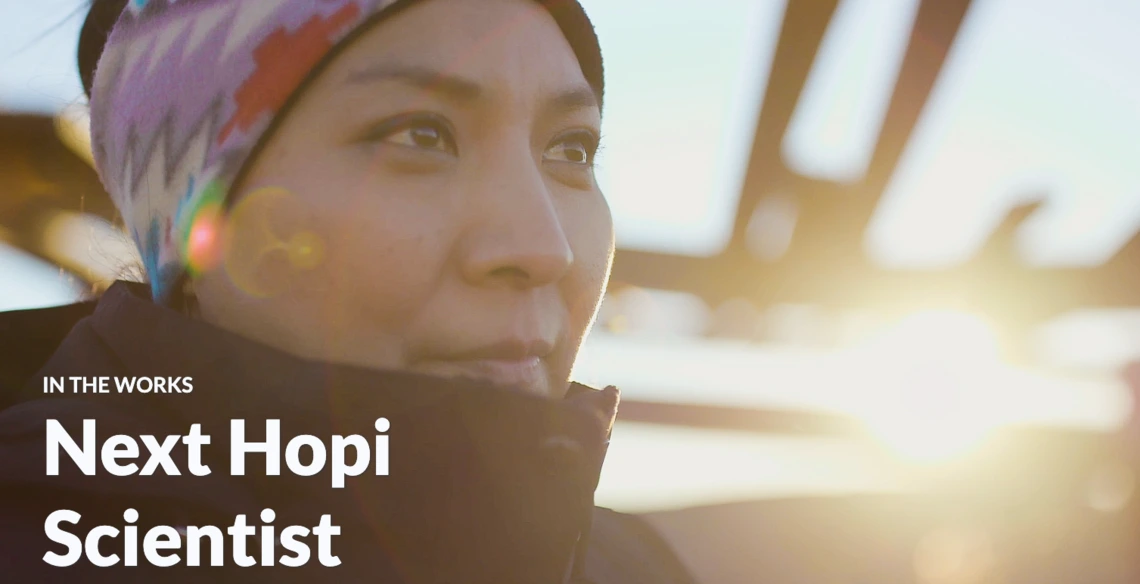Dr. Carrie Nuva Joseph. Research Associate, Center for Indigenous and Environmental Health Research, UArizona College of Public Health

r. Joseph is a member of the Hopi Tribe and her Tribe’s first female Ph.D. scientist, allowing her to advocate for her community using science and Hopi ways of knowing. Dr. Joseph received a 2-year Faculty Fellowship from the Haury Program in 2018. Dr. Joseph is a recipient of the 2019 Native American 40 under 40 awards. In June 2020, the Center for American Indian and Rural Health Equity and Montana State University selected Dr. Joseph for its 2020 Promoting Indigenous Research Leadership program.
Dr. Joseph’s interest in uranium’s effect on human health began when she noticed an increase in the number of cancer cases in Moenkopi, the Hopi village where she grew up. Villagers from Moenkopi, located seven miles downstream from an inactive uranium mill site, use water from the wash for agriculture purposes. Dr. Joseph decided to go back to school to better understand the effects of the abandoned mines on the environment and her community. As a Hopi woman and an indigenous scientist, Dr. Joseph is committed to strengthen the voices and incorporate the knowledge of the Hopi people in science.
"Collaboration with Indigenous villages and cmmunities requires a level of commitment and understanding that is different compared to the nomalized, conventiona approach that most institutions are accustomed to following. As a Hopi woman born and raised on my homelands, this commitment came naturally, as it does for many Indigenous scholars in hgher education settings."
Dr. Carrie Nuva Joseph is an advocate for Indigenous Data Sovereignty –the right of a nation to govern the collection, ownership, and application of its own data – and specializes in using Indigenous methodologies to advance and protect Tribal interests. She partnered with the Center for Indigenous Environmental Health Research and the Hopi Tribe to collect air, dust, soil, and water samples searching for traces of various metals and metalloids, including uranium, lead, molybdenum and arsenic due to the mining history in Hopi Nation. Dr. Joseph will integrate the Hopi community’s knowledge of local mining history, environmental health exposures, and environmental literacy into her research. Dr. Joseph noted it is essential to understand that tribal nations’ strength-based practices “are rooted in their history, shared values, ceremonial cycles, traditional knowledge practices, and language.” Dr. Joseph’s ultimate goal is to enhance Hopi voices in settings where they are often mute, which is the case for mining contamination and policy changes affecting them. If you want to know more about Dr. Joseph’s research go, to https://superfund.arizona.edu/personnel/trainees/carrie-nuva-joseph
When COVID-19 hit in February, Indigenous villages and communities were amongst the most affected. The discrepancies in necessary infrastructure, health equity, and specialized care and expertise common among tribal nations of the U.S. contributed to the rapid spread. Dr. Joseph's quick re-alignment of priorities and goals helped assist in the amendments to existing policies, data access, facilitation of data sharing agreements, development of protocols, and collecting needed supplies to prevent the spread. She also participated in a food security and restoration project and helped create a CARES budget for immediate village needs.
Dr. Joseph participates in other projects, including contributing to curriculum and instruction efforts for upcoming STEM elementary and middle school Indigenous educators, strengthening partnerships, and designing a long-term plan with local agencies, tribal partners, and non-profits that to address water and food security concerns in Hopi Nation. Dr. Joseph and the UArizona CALS LandMark Stories are in the final stage of a 15-minute documentary on environmental challenges related to uranium mining in Hopi Nation. The documentary will be released in 2020 and is made possible in partnership with The Village of Moencopi (Lower) Administration Office, The Hopi Cultural Preservation Office, and the UArizona Department of Environmental Science and Tribal Extension Program. Watch the trailer here: https://landmarkstories.arizona.edu/films/hopi-scientist
